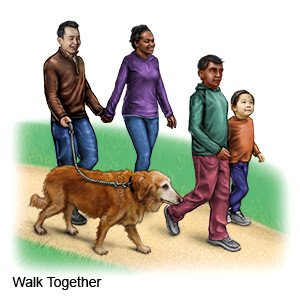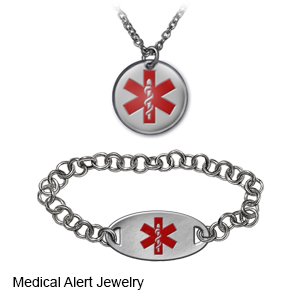Hemophilia
Medically reviewed by Drugs.com. Last updated on Aug 4, 2025.
AMBULATORY CARE:
Hemophilia
is a disorder that causes you to bleed more or longer than normal. Clotting factors such as platelets and fibrinogen help your body form clots to stop bleeding. The clotting factors in your blood may not work correctly, or your body may not make enough.
Types and levels of hemophilia:
The 2 common types of hemophilia are hemophilia A and hemophilia B. Hemophilia A means the level of clotting factor VIII (8) is lower than normal. Hemophilia B means the level of clotting factor IX (9) is lower than normal. Hemophilia can be mild, moderate, or severe. This is based on the amount of clotting factor or the kind of bleeding episodes you have. A bleeding episode is bleeding that lasts longer than several minutes. Bleeding episodes can occur with or without injury.
- Mild: You have some clotting factor activity in your blood. You may only have severe bleeding after surgery or a severe injury.
- Moderate: You have a low level of clotting factor activity in your blood. You may have bleeding episodes that occur suddenly. You are likely to bleed heavily if you have any type of injury or surgery.
- Severe: You have very little clotting factor in your blood. You may have sudden bleeding in your joints, muscles, and other body areas.
Common signs and symptoms of hemophilia:
- Bleeding from your gums or nose often
- Heavy bleeding from injuries or after surgeries or dental work
- Painful bruises that form easily after you bump a body area
- Black bowel movements
- Pink or red urine
- Stiff, painful, or swollen joints
Call your local emergency number (911 in the US) if:
- You have a seizure.
- You are bleeding from an injury to your throat, neck, or eyes.
- You have chest pain or shortness of breath.
Seek care immediately if:
- You are vomiting blood.
- You cannot control your bleeding episodes, even after treatment.
- You bump or injure your head.
- You have new large bruises on your body, or sudden swelling.
- You have new pain in the lower part of your stomach, groin, or lower back.
- Your urine is pink or red.
- You see blood in your bowel movement, or it is black.
Call your doctor or hematologist if:
- You have nausea or are vomiting.
- You feel very tired and weak.
- You get an injury, such as a sprained ankle or an open skin wound.
- You have a fever.
- You have a new or unusual headache.
- You have joint pain that lasts longer than 3 days.
- You have new pain and swelling in a body area.
- You have questions or concerns about your condition or care.
Treatment:
Hemophilia cannot be cured. Treatment is based on the type you have and on your symptoms. Treatment is given to improve clotting and manage symptoms:
- Replacement therapy is used to give blood cells called factor concentrates to replace the missing clotting factor. For severe hemophilia, this treatment may be scheduled 2 or more times each week. You may also need this treatment if you have sudden bleeding. Blood cells may be given through an IV, central venous catheter, or port.
- Medicines may be given to keep blood clots from breaking down, stop bleeding, or increase blood clotting factors. You may also need medicine to decrease swelling.
- Physical and occupational therapy may be recommended. A physical therapist will help you exercise your joints and muscles safely. An occupational therapist teaches you skills to help with your daily activities.
- Surgery such as arthroplasty may be used to repair damage caused by bleeding into your joints.
Manage hemophilia:
- Be physically active, as directed. Physical activity helps keep your muscles flexible and prevents muscle and joint damage. Always check with your healthcare provider before you start any exercise program. Physical or occupational therapists may need to help you exercise safely or teach you skills to help with your daily activities. Do not play contact sports, such as football and basketball. Contact sports increase your risk for bruising and bleeding.

- Keep your teeth and gums healthy. Ask your provider if certain therapy or medicines should be given before you have your teeth cleaned. The amount of your clotting factor may also need to be increased before you have dental work. Talk with your provider before you have any dental work.
- Ask about vaccines you may need. Ask your provider if you should get vaccines against hepatitis A or B, or other infections. Your provider will tell you when to get any needed vaccine.
- Ask about pain medicines you can take safely. Do not take aspirin or NSAIDs. These medicines increase your risk for bleeding.
- Carry medical alert identification. Wear medical alert jewelry or carry a card that says you have hemophilia. Ask your provider where to get these items.

Manage bleeding episodes:
Call your healthcare provider right away if you are bleeding. You may need extra treatments with blood products.
- Use pressure to help stop or slow skin bleeding. Place a clean cloth or towel over the area. Then apply pressure with your hands. Ask your provider how to clean open skin wounds.
- Manage nosebleeds. Breathe through your mouth and lean forward to stop blood from going down the back of your throat.
- Check for blood in your urine. If you have pain in your pelvic area or blood in your urine, rest in bed for 2 days. Drink more liquids, as directed. Ask your provider how much liquid to drink each day and which liquids are best for you.
- Keep frozen popsicles in your home. If you are bleeding from your mouth, place a popsicle in your mouth to help stop the bleeding. Do not swallow the blood.
- Manage joint bleeding. Apply ice to a painful or swollen joint. Use an ice pack, or put crushed ice in a plastic bag. Cover the bag with a towel before you apply it to your joint. If the joint is on your arm or leg, prop it on pillows or blankets to keep it elevated comfortably. Wait until the pain is gone before you use the joint again. See your provider if the pain is not gone in 3 days.
Follow up with your doctor or hematologist as directed:
Write down your questions so you remember to ask them during your visits.
For support and more information:
- National Heart, Lung and Blood Institute
Health Information Center
P.O. Box 30105
Bethesda , MD 20824-0105
Phone: 1- 301 - 592-8573
Web Address: http://www.nhlbi.nih.gov/health/infoctr/index.htm
© Copyright Merative 2025 Information is for End User's use only and may not be sold, redistributed or otherwise used for commercial purposes.
The above information is an educational aid only. It is not intended as medical advice for individual conditions or treatments. Talk to your doctor, nurse or pharmacist before following any medical regimen to see if it is safe and effective for you.
Learn more about Hemophilia
Treatment options
Care guides
Symptoms and treatments
Further information
Always consult your healthcare provider to ensure the information displayed on this page applies to your personal circumstances.
